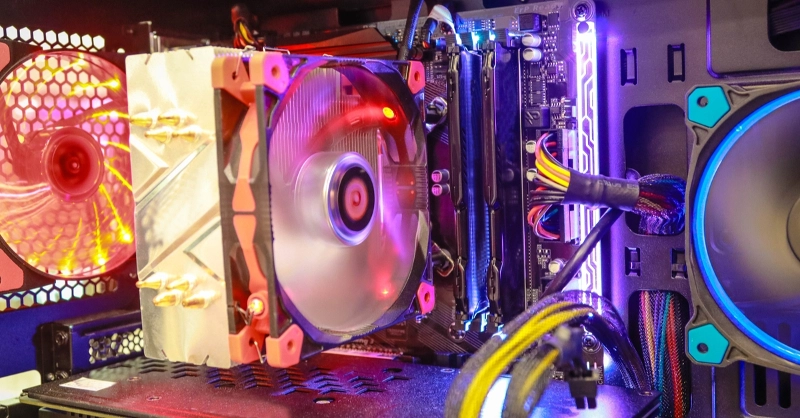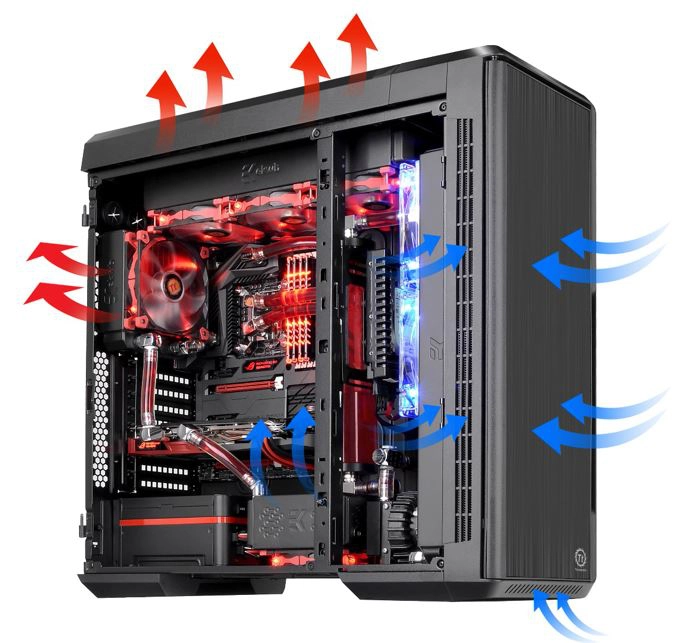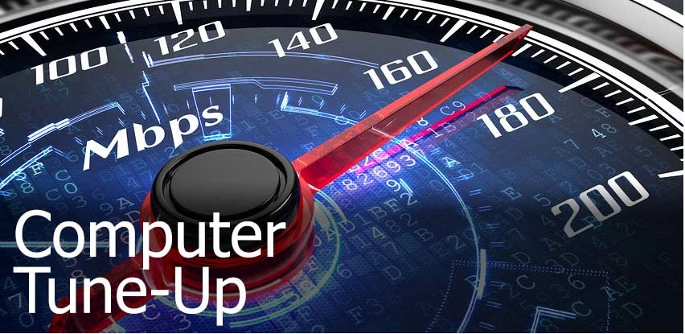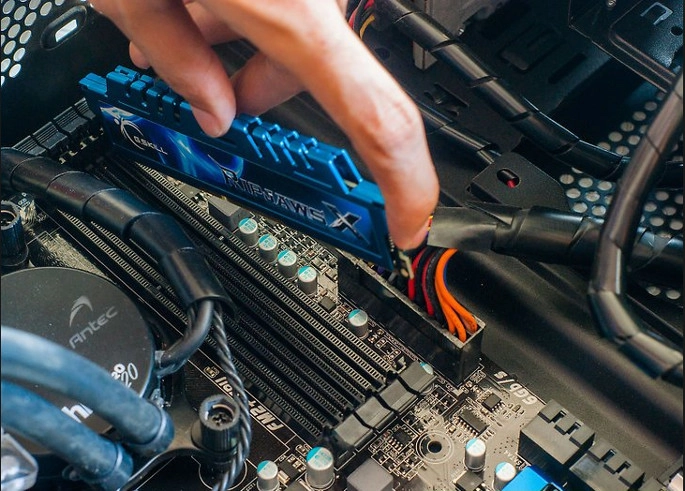
Is your gaming computer optimized to give you the best performance?
Whether you play games competitively or like to team up with your friends for some fun, how well your PC runs can be the difference between winning the game and losing the match.
We’ve seen it happen to many gamers: you and your opponent spot each other at the same time and react instantly. The winner is the one with faster response time, and this often comes down to computer performance.
Gaming tends to push your PC to its limits, so it’s essential to make sure each part is operating at peak condition. If you’re looking to take your gaming to the next level, read on!
Gaming Computer Running Hot, Clean or Upgrade the Cooling System

Gaming will inevitably make your system run hot, so caring for the cooling system in your computer is essential. Many PCs and PC components have cooling fans. Over time, dust and other debris can collect on these fans. If your gaming PC hardware gets too hot, you risk the possibility of component failure. At best, an overheating computer will run poorly. At worst, heat will damage various components.
Here are a few suggestions:
- Clean your case fans to keep them running optimally, and consider adding more or upgrading them if your PC allows it.
- Don’t overlook the CPU, graphics card, and power supply cooling system as these are prone to get clogged with dust.
- Dust off the inside of your PC case at least once a year.
- Consider adding a new application of thermal paste to your CPU.
- Additionally, you may wish to look into liquid cooling, depending on your budget. A closed-loop liquid cooler is necessary for overclockers. Aftermarket CPU coolers are more effective than stock coolers.
Gaming Computer Running Slow, Perform a Tune-up

Over time, your gaming PC will inevitably get slower. The reason is that as you continually add programs throughout the life of your system, the added software will place higher demands on your resources and by default are coded to run in the background. If left unchecked, the number of computer programs running in the background will reduce the performance of your gaming system.
A quality tune-up will speed up your computer and bring it back to life again. Here are some of my favorite tune-up tips:
- Minimize background programs using the Startup tab in Task Manager. Furthermore, you can stop Windows 10 background apps from running. Press Windows key + I > type Background apps > click Background apps and toggle off “Let apps run in the background.”
- Enable Performance Mode in Power Options. Press Windows key + I > type power > Power and sleep settings > Additional power settings. Select High Performance.
- Adjust Windows 10 Visual Effects. Press Windows key + I and type performance, then select Adjust the appearance and performance of Windows > Adjust for best performance > Apply > OK.
- Turn off Transparency Effects. Press Windows key + I and type Transparency effects > click Show transparency in Windows. Toggle off Transparency effects.
- Keep graphics card drivers up to date. You can do this through Windows updates or, preferably, download them from Nvidia or AMD’s website.
Finally, to top it all off, download and run the free version of CCleaner. CCleaner is a disk clean-up tool, and it’s useful for deleting temporary files from your system. Make sure to disable CCleaner from running at startup in settings. Manually run CCleaner once a month. I would suggest not to use the registry cleaner component.
Gaming Computer Under-Performing, Upgrade Old Components

Depending on the age of your PC and its parts, you might replace individual components to improve your game performance. Some ideas:
- Solid-State Drive: Upgrading from a Hard Disk Drive (HDD) to a Solid-State Drive (SSD) will speed up your computer because SSDs offer much faster load times than HDDs.
- Graphics Card: Upgrading your graphics card (or GPU) is another excellent way to increase the performance of your PC. A better GPU means higher-quality visuals and less of your computer resources being used on graphics, freeing them up for other processes.
- RAM: The more Random Access Memory (RAM, or “memory”) you have, the better the performance of your PC. You’ll need an understanding of what and how much RAM is compatible with your particular processor and motherboard when upgrading.
It’s imperative that as you upgrade different parts of your computer, you ensure that each new piece of hardware is compatible with the others in your PC. In particular, make sure your power supply unit (PSU) can handle all of your upgrades!
Don’t Risk Frying Your System – Let an Expert Repair and Upgrade Your Gaming PC
If you make a risky move in a game, you might get a Game Over, but you can always restart. If you take the risk of upgrading your gaming computer yourself, a “restart” could mean costly repairs and replacements!
At PC Mechanic, we offer quality repairs and computer services for gamers who want their PC to run at its best. Call 863-582-2596 or click below to learn more about how we can make your gaming computer run its best.

